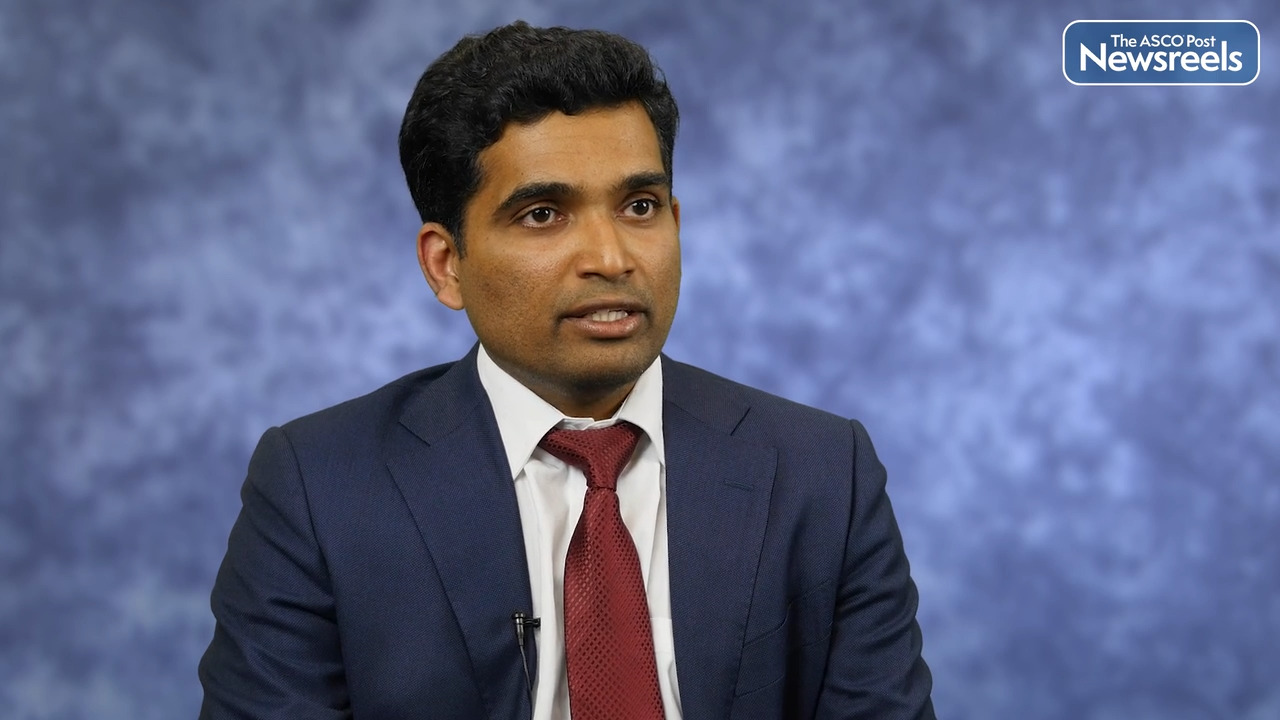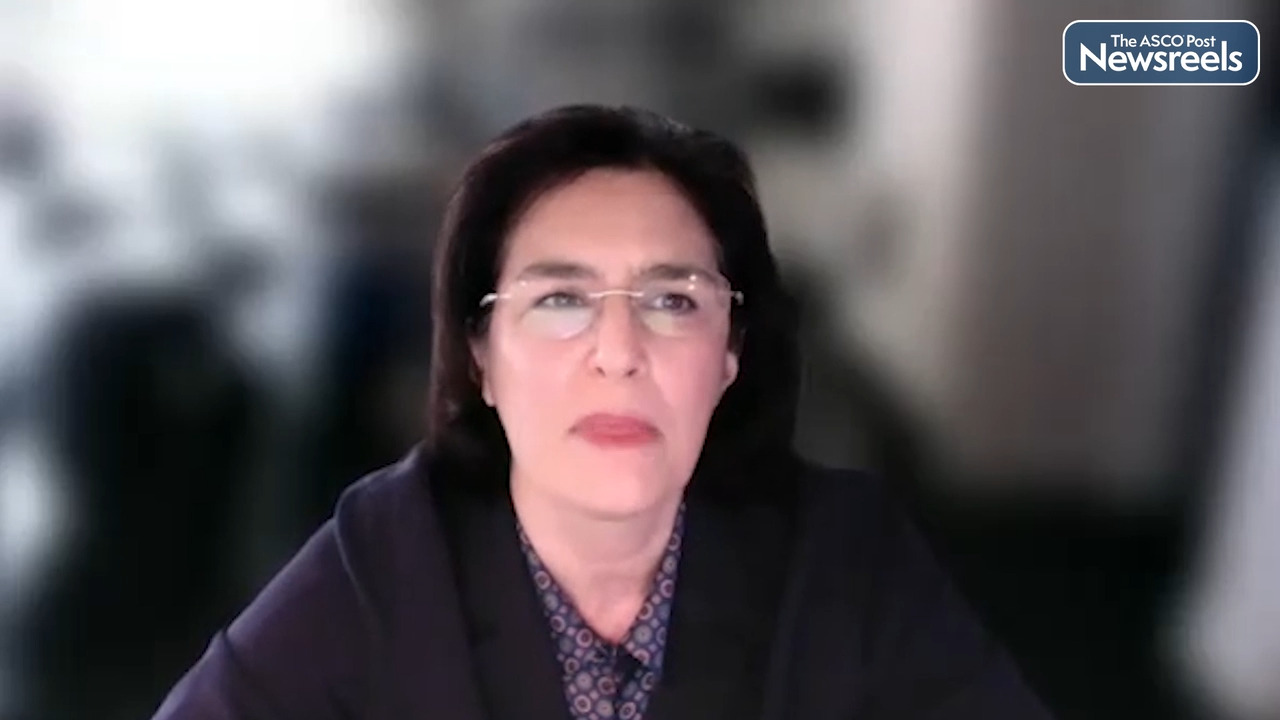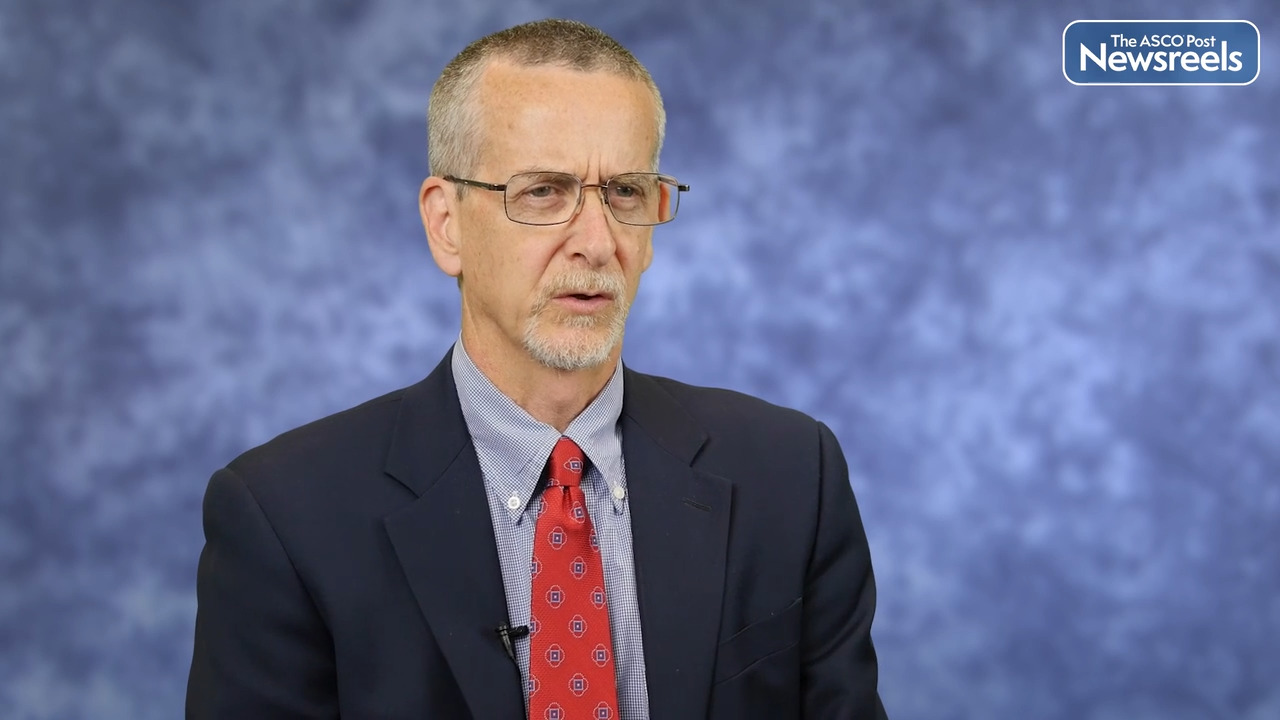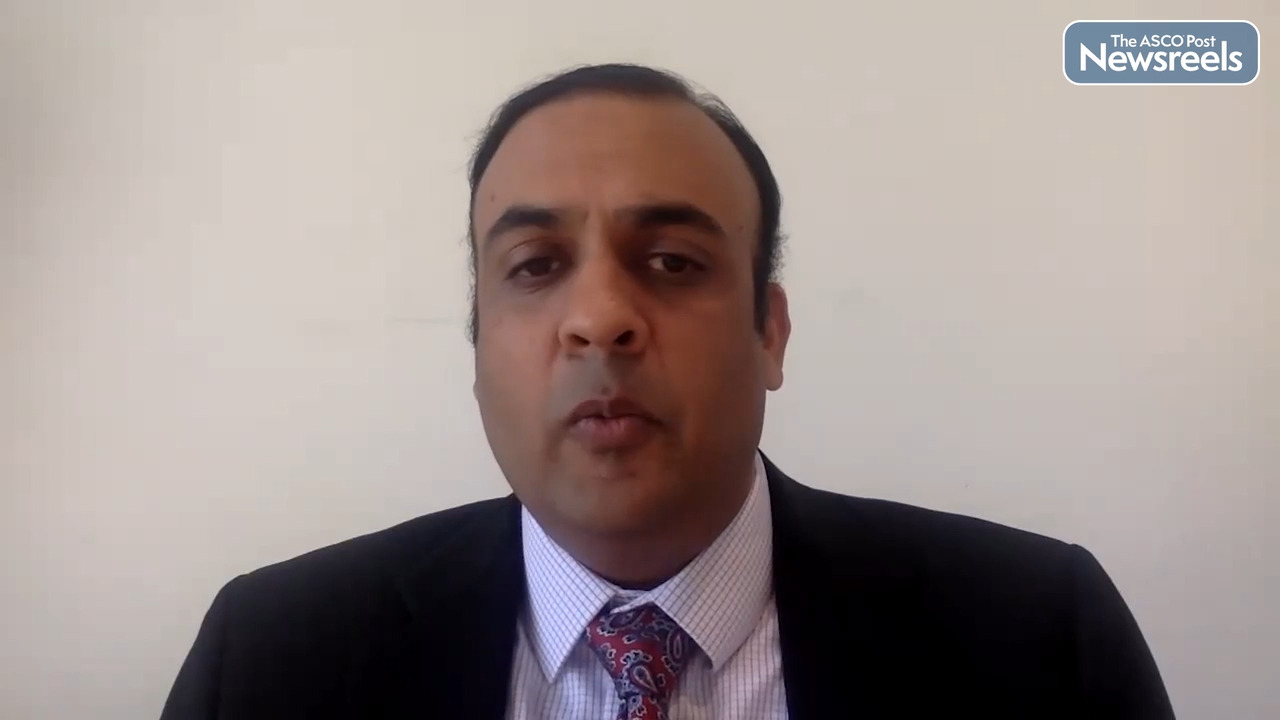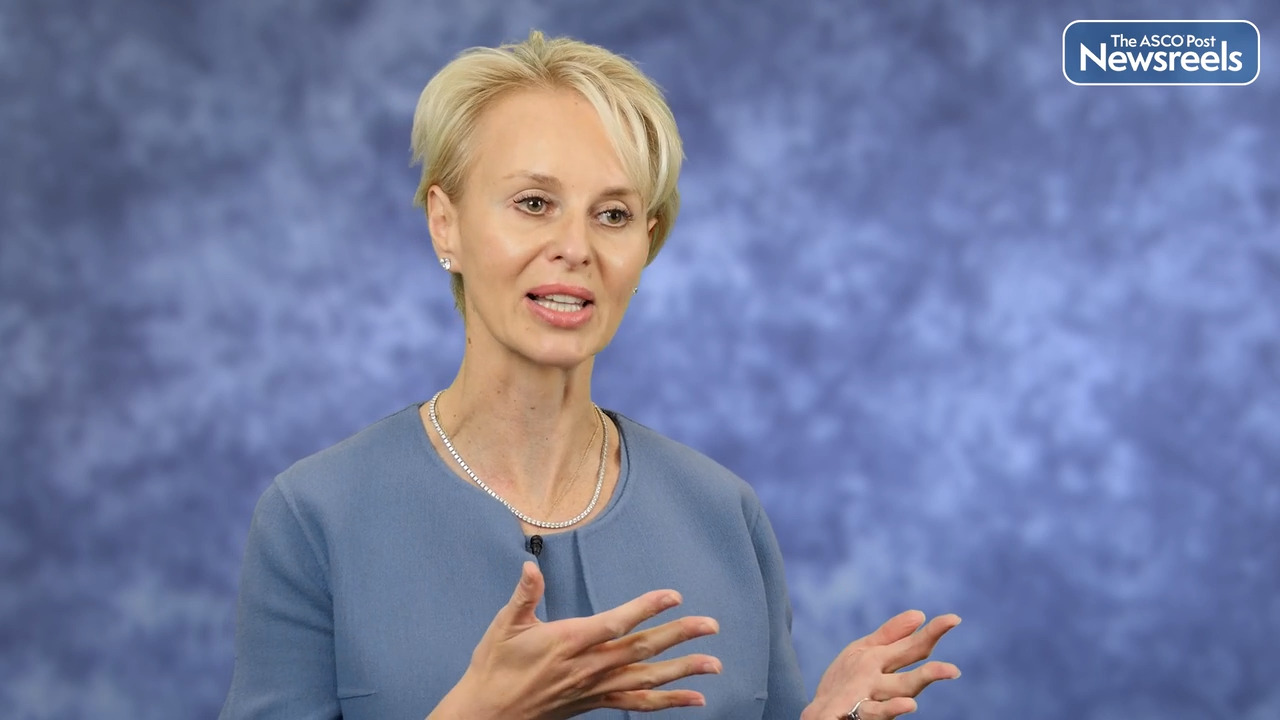Related Videos
Midhun Malla, MD, on Metastatic Colorectal Cancer: Treatment Updates
Midhun Malla, MD, of the West Virginia University Cancer Institute, discusses the molecular landscape of metastatic colorectal cancer and the development and approvals of targeted treatments. Dr. Malla also details the range of HER2-targeted therapeutic options and the approval of trastuzumab and tucatinib for HER2-amplified disease in the second-line setting or after. In addition, he discusses emerging therapies in refractory metastatic colorectal cancers followed by circulating tumor DNA–guided management of oligometastatic colorectal cancers using immune checkpoint inhibitors.
Ella A. Kazerooni, MD, on Lung Cancer Screening: Benefits and Challenges
Ella A. Kazerooni, MD, of the University of Michigan Rogel Cancer Center, discusses reducing cancer deaths in the United States by identifying patients at risk for lung cancer. Engaging with primary care physicians and facilitating referrals are keys to a successful lung cancer screening program, she says, as is working with a nurse care coordinator.
Louis B. Nabors, MD, on NCCN Clinical Practice Guidelines in Oncology Updates for CNS Cancers in Adults
Louis B. Nabors, MD, of the O’Neal Comprehensive Cancer Center at UAB, discusses the three subtypes of adult gliomas classified by the World Health Organization, treatments influenced by IDH mutation status, the roles of radiotherapy and chemotherapy, molecular testing, and pseudoprogression and RANO (response assessment in neuro-oncology) criteria.
Mitesh J. Borad, MD, on Hepatobiliary Cancers: Management Updates
Mitesh J. Borad, MD, of the Mayo Clinic Comprehensive Cancer Center, discusses the expanding number of options in immunotherapies for patients with advanced hepatobiliary cancers, applying targeted treatments to this disease, and the importance of genomic profiling in patients with biliary tract cancers.
Elena Ratner, MD, MBA on Sexual Identity and Function in Cancer Survivors
Elena Ratner, MD, MBA, of Yale Cancer Center/Smilow Cancer Hospital, discusses sexuality, intimacy, fertility, and menopause as important aspects of women’s cancer survivorship and the many effects of treatment on these issues. They often go unacknowledged in the medical community, Dr. Ratner says, because of a lack of knowledge and resources. She describes interventions, including holistic, hormonal, behavioral, psychological, and interdisciplinary approaches.
